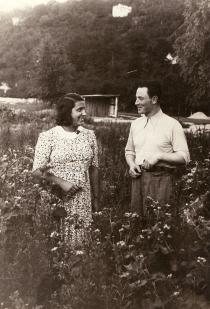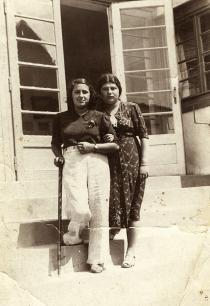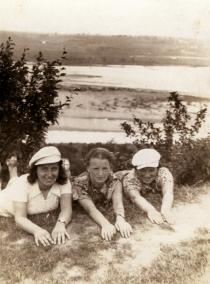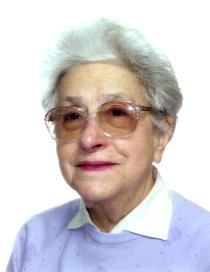It’s my pre-war friend from Lublin, Frajnd.
After the war I completely accidentally ran into him. He two years younger than me. He left in the 1950s, in the early days of Israel. He left with his two kids. So he had a hard life there. And because he's a textile plant worker by profession, he eventually got a job at a plant and his life changed for the better. After he left for Israel, we lost contact, my husband worked for the government, couldn't show he had any contacts with Israel. We had no relatives there, there was no one to write to.
We have still contact. And he writes to me in Yiddish...It’s really interesting.
Though we lived in a Polish neighborhood, we had many Jewish friends, and they visited us. My father spoke poor Polish. He spoke, as was typical for Jews before the war, ungrammatically, poorly. There are four cases in Yiddish, and seven in Polish. He couldn't always decline the cases properly. And at home we spoke Yiddish. If father had gone somewhere, say, to Kazimierz, and I wanted to write him a letter, I had to write in Yiddish; otherwise I wouldn't have received a reply. Those days I spoke Yiddish fluently, but today I don't. Today I stutter, am at loss for words. When my father died, I was in my thirties.
And for so many years I spoke and wrote and read Yiddish. Read I can to this day. If Frajnd from Israel writes to me in Yiddish to spite me, I can read what he writes. But I prefer to reply him in Polish. Because if I do it in Yiddish, it's 'Noah seven errors.' It's this Jewish saying: that in the word 'Noah,' which has only two letters in Hebrew, you make seven errors.































































